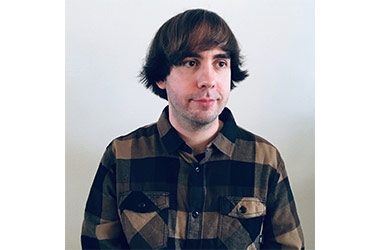Paper Based on Thesis by Wittenborg Marketing Manager Published in International Journal
Paper Based on Thesis by Wittenborg Marketing Manager Published in International Journal
Paper Based on Thesis by Wittenborg Marketing Manager Published in International Journal
https://www.wittenborg.eu/paper-based-thesis-wittenborg-marketing-manager-published-international-journal.htm
Study Co-written by Wittenborg Lecturers
International peer-reviewed journal Consumer Behavior in Tourism and Hospitality (CBTH) has recently published a paper co-authored by Wittenborg’s Marketing and Communications Project Manager Marius Zürcher, Head of School of Business Rauf Abdul, senior lecturer Johan Winbladh and senior lecturer Ioannis Pantelidis from the University of Brighton, UK.
Titled Millennials’ perceptions of artificial intelligence in hotel service encounters, the study is based on the thesis Zürcher submitted in 2019 for an MBA degree in Hospitality and Service Management, which he completed at Wittenborg University of Applied Sciences. By means of an online questionnaire, the author relied on a sample of 169 millennial respondents, of multiple nationalities, to analyse their views on the use of artificial intelligence by hotels and restaurants.
Zürcher explained that he chose to study millennials not only in view of his work as a marketing consultant focused on this generation, but also because millennials are a large demographic group that invests a considerable amount of money in travel and tourism. “On top of that, millennials are tech-savvy and easily adapt to new technologies. While the youngest of them are digital natives, the oldest were introduced to the internet when they were children,” he added.
The questionnaire used to collect the data is composed of broad questions that address people’s interactions with artificial intelligence (AI) during service encounters, without specifying the types of technology involved. “When answering the questionnaire, the respondents had to imagine what these physical or non-physical technological devices would be like. I considered that robots could provide wellness services, such as manicures and massage, as well as delivering food and beverages, while check-ins could be done by chatbots,” Zürcher highlighted.
Among its conclusions, the study finds that although millennials tend to be more comfortable with the use of artificial intelligence in food and beverage services rather than in wellness, they are open to the adoption of AI in the hospitality sector.
In Zürcher’s view, the hospitality industry will become increasingly automated in the coming years. “Even though there will always be hotels and restaurants with little to no automation, in the large-scale hospitality industry it will become more common, and the cheap hotels of the future will be predominantly automated. In line with this, services provided by humans will become more of a luxury item,” he stressed.
Wittenborg senior lecturer Johan Winbladh, who co-authored the paper, said that he was happy to collaborate with the study because it addresses a relevant and current topic, and encouraged students to get their researches published. “By being published, you will improve your CV and learn more about the research process, which is great not only for a career in academia but also in think-tanks, NGOs, government institutions and other types of organisation.”
Other Work
Zürcher often writes about millennials, hospitality and other topics, and his articles are published on the website of 1520 – the start-up he has co-founded with Wittenborg HR Manager Maike Nuyken (click here to access the company’s blog). He is also a columnist for Foodservice Consultants Society International (FCSI).
WUP 31/3/2022
by Ulisses Sawczuk
©WUAS Press
541 words